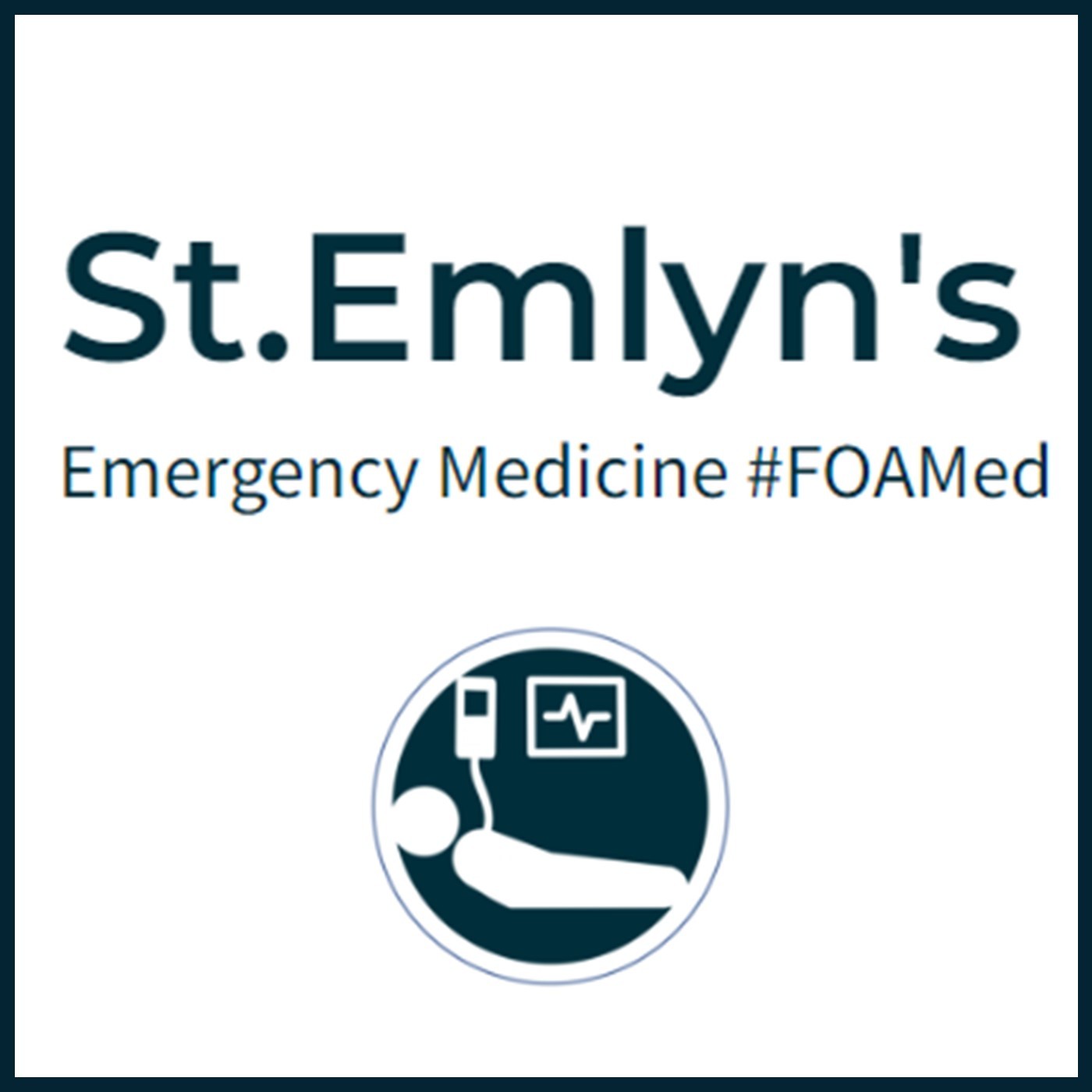
1.3M
Downloads
277
Episodes
A UK based Emergency Medicine podcast for anyone who works in emergency care. The St Emlyn ’s team are all passionate educators and clinicians who strive to bring you the best evidence based education. Our four pillars of learning are evidence-based medicine, clinical excellence, personal development and the philosophical overview of emergency care. We have a strong academic faculty and reputation for high quality education presented through multimedia platforms and articles. St Emlyn’s is a name given to a fictionalised emergency care system. This online clinical space is designed to allow clinical care to be discussed without compromising the safety or confidentiality of patients or clinicians.
Episodes
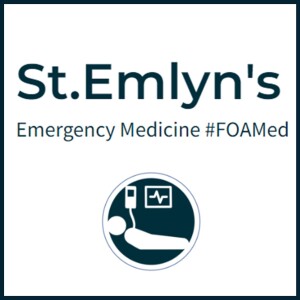
Wednesday Apr 16, 2025
Ep 267 - Social Media and Artifical Intelligence in Medicine with Peter Brindley at LTC
Wednesday Apr 16, 2025
Wednesday Apr 16, 2025
Join hosts Iain Beardsell and Natalie May at the London Trauma Conference as they welcome Peter Brindley back to the St Emlyn’s podcast. In this engaging episode, they delve into the nuances of social media, digital footprints, and the burgeoning influence of artificial intelligence in medicine. Brindley discusses the importance of maintaining an authentic digital presence and addresses the impact of misinformation and disinformation in the digital age. They explore the challenges and opportunities presented by AI in clinical decision-making and share insights on navigating this evolving landscape as healthcare professionals. Tune in for a thought-provoking conversation on staying relevant and responsible in a digitally-driven world.
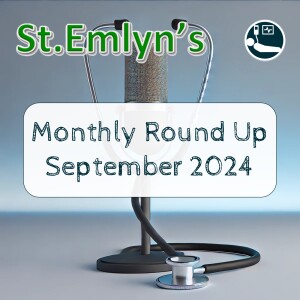
Wednesday Nov 20, 2024
Wednesday Nov 20, 2024
In this episode of the St Emlyn's podcast, Iain Beardsell and Simon Carley discuss various facets of emergency medicine.
They highlight a study on patient experience in emergency departments, focusing on issues like loss of autonomy, unmet expectations, and vulnerability. Suggestions for improvement include better communication, effective signage, and patient comfort.
The podcast also covers a 'dirty adrenaline drip' study from Australia, emphasizing remote inotrope management.
Discussions include the use of arterial blood pressure monitoring in pre-hospital settings and the merits of CT scans beyond the traditional six-hour window for diagnosing subarachnoid haemorrhage.
The episode wraps up with reflections on the positives of emergency medicine and the importance of maintaining enthusiasm and mastery in the field.

Thursday Nov 14, 2024
Ep 249 - Care in the Hot Zone with Claire Park at Tactical Trauma 2024
Thursday Nov 14, 2024
Thursday Nov 14, 2024

Wednesday Aug 07, 2024
Wednesday Aug 07, 2024
As the UK enjoys its unpredictable summer, with everything from sunshine to hailstorms, we bring you a mix of updates and discussions on emergency medicine, blog content, upcoming conferences, and insightful research reviews. So, whether you're basking in the sun or sheltering from the rain, sit back and enjoy our latest insights into the world of emergency medicine.
In this round-up of Month Year, we talk about a wide range of issues relating to emergency medicine, including nebulised ketamine for analgesia in the ED, risky intubations, presentation skills, more about the DOSE VF trial and analysis of the much-hyped PREOXI trial about preoxygenation before tracheal intubation.
We're excited to announce our participation in two upcoming conferences. The Tactical Trauma Conference in Sweden this October promises to delve into pre-hospital emergency medicine, offering sessions from renowned speakers. It's a fantastic opportunity to learn and network, with flights to Sweden being relatively affordable. The event takes place just north of Stockholm, providing a chance to explore the beautiful city.
In March next year, we look forward to the Incrementum Conference in Murcia, Spain. This is a significant event as emergency medicine has recently been recognized as a specialty in Spain. The conference will feature an impressive lineup of speakers from the FOMED world, including Scott Weingart, Ken Milne, Hany Malamatt, and Slim Resie , among others. Our very own Simon Carly will also be presenting. We'll be there to conduct interviews and gather exclusive content for our listeners.
Thank you for joining us, please do like and subscribe wherever you get our podcasts.

Wednesday May 03, 2023
Ep 215 - March 2023 Monthly Round Up
Wednesday May 03, 2023
Wednesday May 03, 2023
Our monthly podcast round up from St Emlyn's Blog. This month Simon and Iain discuss the prehospital use of troponin measurement in the assessment of patients with chest pain and the use of AI in medicine, as well as an update about St Emlyn's WILD.
Please do like and subscribe
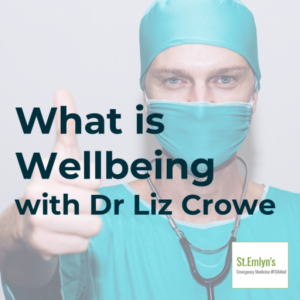
Saturday Dec 10, 2022
Ep 208 - What is Wellbeing with Liz Crowe
Saturday Dec 10, 2022
Saturday Dec 10, 2022
Wellbeing is very complex, as it is an individual construct that is strongly aligned and interpreted through a lens of personal values, philosophy, culture, faith, and goals for life. Most importantly, wellbeing is dynamic rather than homeostatic and a subjective state determined by the individual.
Yet we use the term wellbeing to describe a wide variety of different things (often in terms of being the opposite of burnout which it most certainly isn't).
In this second episode of our series Liz Crowe discusses in detail what the literature says about wellbeing and how we may be able to use this going forward.
Please do like and subscribe. Thanks for listening.
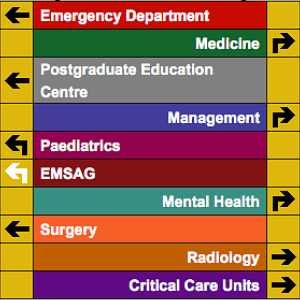
Saturday Aug 31, 2019
Ep 143 - The Future of Diagnostics with Rick Body
Saturday Aug 31, 2019
Saturday Aug 31, 2019
Prof. Rick Body is an internationally recognised expert in diagnostic testing. In this podcast he takes us through diagnostics today and also the near future which may change almost everything.
You can read more and see the slides/video at http://www.stemlynsblog.com

Wednesday May 01, 2019
Ep 135 - April 2019 Round Up
Wednesday May 01, 2019
Wednesday May 01, 2019
St. Emlyn's April 2019 Podcast Highlights
Hello and welcome to the St. Emlyn's blog. I'm Simon Carley, and today I'll be sharing the exciting developments from April 2019 on our St. Emlyn's blog. This month has been packed with insightful posts and groundbreaking research, so let's dive in.
Andromeda Shock Trial: A New Perspective
We begin with a thought-provoking journal club post by Dan Horner, an intensivist and emergency physician, who explores the Andromeda Shock trial. This study, conducted in Argentina, compared two resuscitation strategies for patients with septic shock: targeting lactate levels versus peripheral perfusion as measured by capillary refill time.
The Andromeda Shock trial is fascinating because it challenges our reliance on measurable indicators like lactate levels. Many experts argue that lactate doesn't provide the information we think it does about sepsis. Rich Carden's excellent blog on lactate delves into this topic, explaining why the common assumption that lactate indicates anaerobic metabolism is incorrect. Insights from leading intensivists like John Mayberg and Simon Finfer prompt a reevaluation of how we interpret lactate levels.
In the trial, patients managed using peripheral perfusion monitoring showed better outcomes than those managed by lactate levels. Although the trial is underpowered to show definitive differences, the findings suggest that both methods are likely similar in effectiveness. This study highlights the need to reconsider our approach to monitoring septic shock patients and suggests that capillary refill time could be a valuable, low-cost alternative to lactate measurement.
Enhancing Learning with Minimal Effort
Next, we turn to an intriguing blog by Nick Smith, who shares a lazy yet effective way to enhance learning. Inspired by Matthew Walker's book "Why We Sleep," Nick discusses the critical role of rest in learning and retention. The key takeaway is simple: if you're not well-rested before and after learning, you won't retain information effectively.
Nick emphasizes understanding individual learning rhythms. Some people, like early risers, learn best in the morning, while night owls perform better later in the day. This insight is crucial for medical educators and learners alike. For instance, teenagers naturally have later sleep cycles, making early morning learning sessions less effective.
Walker’s book provides compelling evidence on how sleep affects cognitive function and memory consolidation. During sleep, particularly REM sleep, the brain processes and organizes information learned throughout the day. Lack of sleep disrupts this process, leading to poorer retention and understanding.
Nick integrates these scientific insights with practical advice, making his blog an invaluable resource for optimizing learning strategies. He offers tips on improving sleep hygiene, such as maintaining a consistent sleep schedule, creating a restful environment, and avoiding stimulants before bedtime.
Nick also highlights the impact of disrupted sleep patterns, especially when attending international conferences. Jet lag and lack of sleep can severely hamper your ability to absorb new information. Moreover, alcohol consumption negatively affects learning, which is worth considering during conference social events.
Nick's post is packed with practical tips and impressive infographics that make the information easily digestible. It's a must-read for anyone involved in medical education or looking to optimize their learning strategies.
Aortic Emergencies: Key Insights from George Willis
George Willis, a renowned speaker and former professional American football player, presented on aortic emergencies at the St. Emlyn's Live Conference. His talk is a goldmine of information for emergency medicine practitioners. Aortic emergencies, such as ruptured aortic aneurysms and dissections, are critical conditions that require swift diagnosis and management.
George emphasizes using clinical history and tools like ultrasound to diagnose aortic emergencies. For example, ultrasound can identify abdominal aortic aneurysms and dissections via transthoracic echo. He also discusses managing these patients, particularly those with dissections, who present unique challenges due to their unstable blood pressure.
One notable case George describes involves managing pericardial effusion and tamponade resulting from aortic dissection. Techniques like pericardiocentesis can be life-saving, buying valuable time for definitive treatment. George's practical tips and real-world examples make his presentation an invaluable resource for anyone dealing with aortic emergencies.
Managing aortic emergencies requires a nuanced approach, particularly when dealing with unstable patients. George discusses using medications like labetalol for beta-blockade and alpha-blockade to manage blood pressure in dissection patients. These medications help reduce the strain on the aorta without compromising patient safety.
George also covers using imaging techniques, such as CT angiography, to confirm diagnoses and plan interventions. The ability to quickly and accurately diagnose these conditions is crucial for timely surgical intervention, which can significantly improve patient outcomes.
Ambulatory Care for PEs: Dan Horner's Expert Insights
Dan Horner returns with another insightful blog, this time on the ambulatory management of pulmonary embolisms (PEs). At the Arkham conference in Belfast, Dan discussed the benefits and challenges of treating PEs as outpatients. His post is a comprehensive guide to identifying which patients can be safely managed at home and which require hospital admission.
Dan explores various prognostic factors and scoring systems, such as PESI and sPESI, used to predict complications in PE patients. While these scores are better than Gestalt, they are not without limitations. Dan also touches on biomarkers and their role in predicting PE outcomes, though current data is not definitive.
Identifying patients who can be safely managed on an outpatient basis is crucial for optimizing resource use and improving patient comfort. Dan discusses the criteria for outpatient management, including the absence of hemodynamic instability, low bleeding risk, and adequate home support. These criteria help ensure that only patients with a low risk of complications are selected for ambulatory care.
Treatment options for PEs are evolving, with a shift from traditional anticoagulants like Warfarin to NOACs/DOACs. While these newer agents offer convenience, the evidence base is still developing. Dan also addresses the complexities of managing PEs in special populations, such as pregnant patients, highlighting the need for individualized care and informed discussions with patients.
Implementing ambulatory care for PEs requires careful planning and coordination. Dan provides practical advice on setting up ambulatory care pathways, including patient education, follow-up protocols, and the use of telemedicine to monitor patients remotely. He also discusses the importance of multidisciplinary collaboration in managing these patients.
Dan's blog is a treasure trove of resources, including guidelines for outpatient management, risk scores, and follow-up strategies. It's an essential read for anyone involved in the care of PE patients, offering the latest evidence and practical advice.
Coping with Clinical Tragedies: Liz Crowe's Personal Journey
To conclude our April roundup, we have two deeply moving blogs by Liz Crowe, where she shares her experiences of dealing with clinical tragedies. Liz's candid account of a recent tragic event in her professional life resonates with many healthcare professionals who have faced similar situations. Her blogs not only describe the emotional impact of these events but also offer strategies for coping and recovery.
Liz's first blog delves into the profound emotional toll that clinical tragedies can take on healthcare providers. She describes the initial shock, feelings of guilt and helplessness, and the long-lasting impact on mental health. These experiences are not uncommon in the medical field, where the stakes are high, and the outcomes can sometimes be devastating.
Liz emphasizes the importance of acknowledging and processing these experiences, rather than burying the emotions. She provides practical advice on how to support yourself, your colleagues, and your loved ones during such challenging times. Liz's insights are invaluable for anyone in the healthcare field, offering guidance on how to navigate the emotional aftermath of clinical tragedies.
In her second blog, Liz focuses on strategies for coping with and recovering from clinical tragedies. She highlights the importance of seeking professional help when needed, whether through counseling, peer support groups, or other mental health resources. Liz also emphasizes the value of self-care practices, such as exercise, mindfulness, and maintaining a healthy work-life balance.
Liz shares her personal journey of recovery, including the support she received from colleagues and the strategies that helped her regain her confidence and resilience. Her story is a powerful reminder that, while clinical tragedies are deeply challenging, it is possible to heal and continue to provide compassionate care to patients.
Liz's blogs also underscore the importance of building a supportive community within the healthcare profession. She advocates for open conversations about mental health and the emotional challenges of medical practice, fostering an environment where healthcare providers feel safe to share their experiences and seek help.
Liz's blogs are a must-read for anyone who has experienced or is supporting someone through a clinical tragedy. They offer hope and practical strategies for healing and moving forward.
Final Thoughts
April 2019 has been an incredibly insightful month on the St. Emlyn's blog. From groundbreaking research and practical medical education tips to deeply personal reflections on clinical tragedies, we've covered a wide range of topics. Each post offers valuable insights and practical advice for healthcare professionals.
As we continue to face the challenges of a busy emergency department, it's crucial to stay informed and up-to-date with the latest evidence and best practices. Whether you're managing septic shock, improving your learning strategies, diagnosing aortic emergencies, treating PEs, or coping with clinical tragedies, the St. Emlyn's blog has you covered.
The diversity of topics covered this month highlights the importance of continuous learning and adaptation in emergency medicine. By staying abreast of the latest research and best practices, we can ensure that we are providing the highest quality care to our patients.
Thank you for joining us on this journey through April 2019. We hope you find these posts as enlightening and helpful as we do. Stay tuned for more exciting updates and insights from the St. Emlyn's team. Enjoy your emergency medicine practice, and we'll speak to you again soon.

Wednesday Jan 30, 2019
Wednesday Jan 30, 2019
In this episode of the St. Emlyn's podcast, Rick Body and Charlie Reynard discuss an influential research project conducted by Dr. Reynard during his academic foundation program. The paper, titled 'Optimizing Antiplatelet Utilization in the Acute Care Setting,' explores decision-making under clinical uncertainty, specifically in emergency medicine for suspected acute coronary syndromes (ACS). Through systematic reviews and decision tree modeling, the research evaluates the benefits and risks of various antiplatelet therapies, such as Ticagrelor and aspirin versus Clopidogrel and aspirin. The findings reveal that Ticagrelor and aspirin are often more beneficial for patients with a greater than 8% probability of ACS, while Clopidogrel holds little to no place in current practice. The discussion opened up new questions about dynamic risk prediction and the importance of modeling to inform clinical decisions.
00:00 Introduction to the Podcast
00:26 Charlie's Research Background
00:52 Overview of the Research Paper
01:17 Decision Making Under Uncertainty
03:05 Systematic Reviews and Data Collection
03:46 Building the Decision Tree Model
04:48 Results and Key Findings
08:07 Implications for Clinical Practice
09:19 Future Directions and Conclusion

Sunday Dec 16, 2018
Sunday Dec 16, 2018
This podcast was recorded at the Intensive Care Society State of the Art meeting in London 2018. Simon Carley interviews Prof Peter Brindley on the interface of technology, humans and humanity in critical care. The audio was recorded live and at the venue so there is a fair bit of background noise, but we hope that this does not distract from a wide ranging and fascinating podcast.

Thursday Dec 06, 2018
Thursday Dec 06, 2018
Five strategies to improve your resuscitations.
1. Zero point survey
2. Peer review
3. 10 in 10
4. Hot debriefs
5. Fly the patient
You can read about these strategies, watch the video and learn about the background on the St Emlyn's blog here https://www.stemlynsblog.org/stemlynslive-five-free-strategies-to-improve-your-resuscitation-practice-st-emlyns/
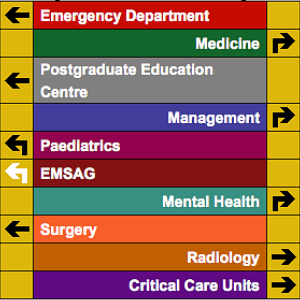
Thursday Aug 30, 2018
Ep 116 - Moral Injury in emergency and prehospital care with Esther Murray
Thursday Aug 30, 2018
Thursday Aug 30, 2018
This week we recorded a podcast inspired by a recent publication in the EMJ. Esther Murray aka @EM_Healthpsych is a psychologist working in London.
Her recent paper on whether the experiences of medical students might precipitate moral injury during their pre-hospital experiences gives an insight into how we all cope with and respond to the clinical work we do. Some of the work we do is traumatic, painful and morally difficult to rationalise. We are witness to the very worst aspects of some of our patient’s lives and there may be a price to pay.
I was delighted to explore some of the concepts around moral injury in this podcast and would really recommend that you read the paper 1 and consider whether this is something that can affect ourselves and our colleagues. The paper is open access at the moment so there is no excuse not to 😉
Although the paper is based on a small number of participants from only one aspect of the healthcare system it does recognise this limitation and alludes to future work with different groups of clinician.
What is Moral Injury?
Esther describes ‘moral injury’ as a concept emerging from work with military veterans. It is used to describe the psychological sequelae of ‘bearing witness to the aftermath of violence and human carnage

Sunday Mar 05, 2017
Ep 89 - March 2017 Round Up
Sunday Mar 05, 2017
Sunday Mar 05, 2017
In a new podcast format Simon (@EMManchester) and Iain (@docib) discuss the month's offerings from the St Emlyn's blog and podcast (www.stemlynsblog.org).
It's been a month full of interesting posts on subjects as diverse as Thrombolysis in Stroke (Alan Grayson), The Future of Emergency Medicine in the Social Age (Simon), Cardiac Arrest Centres (Simon), Love in Critical Care (Liz Crowe), Transfers (Nat and Simon), Thrombolysis in PE (a guest post from FOAMed legend Anand Swarminathan) and Benzos in Back Pain (Janos). Head to the website for the articles themselves and all the references and links you need.
We're aiminig to make this a regular monthly podcast - let us know if it's useful and enjoyable and how we could make it even more educational.

Tuesday Feb 14, 2017
Ep 88 - ED transfers. Patient, Preparation and People.
Tuesday Feb 14, 2017
Tuesday Feb 14, 2017
Nat and Simon discuss the complexities of transferring a patient from the resus room to CT and back again. Look out for the blog post soon on stemlynsblog.org

Thursday Nov 17, 2016
Ep 83 - The Teaching Course in NYC Round Up
Thursday Nov 17, 2016
Thursday Nov 17, 2016
Insights from the New York Teaching Course: Enhancing Medical Education
Welcome to the St. Emlyn's blog! I'm Iain Beardsell, sharing insights from the recent New York Teaching Course, an event organized by Rob Rogers and Saline Rissai. This course brought together educators from diverse backgrounds, including pediatric surgeons, flight nurses, PhD students, and even a veterinarian, all united by the goal of becoming better educators. Notable attendees included Ross Fischer, Ashley Leibig, Sandra Viggers, and Camilla Sauronson, who shared their experiences and key takeaways.
Diverse Expertise and Shared Learning
The New York Teaching Course offered a unique opportunity to learn from a broad spectrum of expertise. Ross Fischer, a Pediatric Surgeon and presentation expert, found it humbling to be sought after for his advice on presentation skills. He highlighted the importance of continual improvement, noting the evolution of presentations over the years. His blog, ffoliet.com, offers valuable tips for enhancing presentation skills, a crucial aspect of effective teaching.
Ashley Leibig, known for her contributions to St. Emlyn's and her work at SMAC, emphasized the value of open communication. She appreciated the honesty in feedback sessions, where participants openly shared their past errors and positive feedback practices. This openness is essential for professional growth and creating a safe learning environment.
Sandra Viggers, a research fellow at the Copenhagen Academy for Medical Education and Simulation, focused on the power of vulnerability in simulation and debriefing. She found the social events particularly impactful, highlighting a moment where a participant shared a personal story, moving many to tears. This reinforced the importance of sharing and building a supportive community in educational settings.
Camilla Sauronson, a medical student from Denmark and PhD candidate in Tourette Syndrome, valued the inspiring environment of the course. She was particularly interested in innovative teaching methods like the flipped classroom, which involves engaging learners with materials before group discussions. This method fosters active learning and deeper understanding, a shift from traditional lecture-based teaching.
Key Takeaways and Learning Points
The course provided numerous valuable insights and practical lessons:
-
Flipped Classroom: Camilla Sauronson emphasized the effectiveness of the flipped classroom approach, which encourages students to engage with educational content before attending group discussions. This method promotes active learning and enriches classroom interactions.
-
Constructive Feedback: The feedback session led by George Willis was a highlight, demonstrating the importance of giving constructive feedback. Ashley Leibig noted the challenges in providing good feedback but appreciated the practical pointers provided during the session. Effective feedback is critical for personal and professional development.
-
Presentation Skills: Ross Fischer underscored the continuous need to refine presentation skills. His insights into slide design and delivery were invaluable, reminding educators of the importance of clear and engaging communication in teaching.
-
Resilience and Wellbeing: Sandra Viggers reflected on Chris Doty's talk on resilience. Doty discussed recognizing signs of burnout and the importance of self-care. Sandra emphasized the need for educators to be mindful of their own and their learners' wellbeing, highlighting the role of supportive relationships in preventing burnout.
-
Engaging Lectures: Ken Mills' interactive workshop on evidence-based medicine showcased that lectures can be both educational and entertaining. Using historical figures to illustrate concepts made the session memorable and engaging, demonstrating that education can and should be enjoyable.
Building a Supportive Educational Community
A particularly poignant moment during the course was a participant sharing a deeply personal story during a social event. Sandra Viggers emphasized the significance of vulnerability and the supportive community fostered at the course. This sense of community is vital in emergency medicine and education, where the pressures of the job can be intense. Building strong, supportive networks helps individuals navigate challenges and grow both personally and professionally.
Practical Applications and Future Directions
As the course concluded, participants were encouraged to apply what they had learned in their own teaching practices. Key practical steps include:
- Implementing the Flipped Classroom: Start by incorporating pre-session materials like podcasts or articles, fostering richer discussions during group sessions.
- Developing Effective Feedback Techniques: Create a structured approach to giving feedback, focusing on being constructive and empathetic.
- Enhancing Presentation Skills: Regularly review and improve presentation materials, seeking feedback from peers.
- Prioritizing Wellbeing: Integrate wellbeing discussions into educational curricula and encourage self-care practices among staff and students.
- Fostering a Supportive Community: Create opportunities for personal sharing and team-building, strengthening trust and collaboration.
Looking Forward
The New York Teaching Course was an enriching experience, and similar events are planned for the future, including one in Copenhagen before the next SMAC conference. These courses provide more than just educational content; they are opportunities to connect with a global community of educators dedicated to improving their craft.
For more detailed reflections and session summaries, the Scan FOAM website offers comprehensive coverage. Their posts provide a virtual experience of the course, nearly as immersive as attending in person.
Conclusion: A Commitment to Continuous Improvement
The New York Teaching Course reinforced that teaching is not merely about imparting knowledge but about connecting with students, being vulnerable, and continuously improving. Whether you're an experienced educator or just starting, there's always room for growth. Let's carry forward the lessons learned, strive to be better educators, and support our students and colleagues. Thank you for joining us on this journey, and stay tuned for more insights and stories from St. Emlyn's. Keep learning, keep teaching, and be the best educator you can be.

Wednesday Oct 12, 2016
Ep 81 - Difficult Conversations with Children in Critical Care with Liz Crowe
Wednesday Oct 12, 2016
Wednesday Oct 12, 2016
Helping Children Understand Tragedy: Guidance for Parents and Professionals
In a recent St Emlyn's podcast, Iain Beardsell and Liz Crowe, an advanced social worker in a pediatric intensive care unit in Brisbane, explored the critical topic of how to communicate with children during tragic situations. The discussion emphasized the importance of honesty and directness when dealing with topics like illness, death, and other forms of hardship.
Understanding the Context
Historically, children in many cultures were more regularly exposed to the realities of life, such as birth and death. In contrast, modern Western societies often shield children from these experiences. However, Liz asserts that children are more perceptive and resilient than we give them credit for, and attempts to protect them from all emotional pain can be detrimental. Shielding children from the truth can lead to confusion and increased anxiety, as they often sense when something is wrong, even if it is not explicitly communicated to them.
The Importance of Honesty
When difficult situations arise, such as a family member being diagnosed with a serious illness or being involved in an accident, adults may feel the instinct to protect children by withholding information. However, research and experience show that children cope better when they are informed and involved. Children, especially those under ten, can mistakenly believe they are responsible for negative events due to their egocentric worldview. Therefore, it is crucial to communicate clearly and truthfully, helping them understand the situation without assigning blame to themselves.
Balancing Protection and Reality
Parents naturally want to protect their children from pain. However, overprotection can prevent children from learning to deal with disappointment and hardship, essential components of developing resilience. Liz argues that by being overly protective, we may contribute to rising rates of depression and mental health issues among young people. It's essential to prepare children for life's challenges by allowing them to experience and understand difficult emotions in a supportive environment.
Practical Approaches to Communication
When faced with the need to communicate difficult news to children, it's important to empower familiar adults—such as parents or guardians—to have these conversations rather than leaving them to strangers. Here’s a suggested approach:
- Preparation: Prepare the adults involved in the child's life by discussing the importance of honest communication and the possible impacts of the conversation.
- Setting Expectations: Describe what the child might see, hear, and feel to reduce anxiety and set clear expectations.
- Use Specific Language: Avoid euphemisms. Use specific medical terms like "neuroblastoma" or "head injury" to describe the situation accurately.
- Timing and Environment: Choose an appropriate time and setting for the conversation, avoiding moments when the child might be tired or distracted.
- Stick to the Facts: Provide clear, factual information without overwhelming the child. Keep explanations straightforward and allow time for processing.
- Encourage Questions: Allow the child to ask questions and answer them honestly. It’s okay to admit if you don’t have all the answers.
- Ongoing Support: Be available for follow-up conversations, as children may revisit these topics as they process the information.
Using Accurate Language
It’s crucial to use accurate language when discussing severe issues. Avoid using vague terms like "poorly," which can lead to misunderstandings. For example, describing a child as "very sick" without specifying the illness can cause confusion and fear, especially if the child later associates the term with less severe conditions. Using specific medical terminology helps children differentiate between different types of illnesses and their severity.
Long-Term Impact on Children
Many parents and caregivers worry that exposure to tragedy will permanently damage their children. While such experiences can indeed be life-changing, they do not necessarily result in negative outcomes. Children who experience the death of a sibling or parent may grieve and feel pain, but they can also develop greater empathy and understanding of life's complexities. Research indicates that while children in these situations may have higher levels of anxiety, they are not necessarily less successful academically or socially. They often develop a deeper sensitivity and a better understanding of life.
The Role of Counseling and Support
While counseling can be helpful, Liz cautions against making it the default response. Instead, she suggests that families should be encouraged to navigate these challenges on their own, seeking professional help only if they find themselves unable to cope. This approach fosters resilience and self-reliance, teaching children that while therapy is a valuable resource, it's not always necessary.
Conclusion: Building Resilience
Ultimately, difficult conversations with children about tragedy are a necessary part of life. By approaching these conversations with honesty, clarity, and support, we can help children navigate their emotions and develop the resilience needed for future challenges. Whether as parents or healthcare professionals, our role is to guide children through these experiences, providing the tools and understanding they need to grow and thrive.
At St Emlyn's, we believe that while we can't shield children from all of life's difficulties, we can help them face these challenges with courage. The experiences that children go through, even the painful ones, can serve as opportunities for growth and learning. With the right support, children can emerge from these experiences stronger and better equipped to handle life's complexities. Our goal is to create a safe space for children to express their feelings, ask questions, and ultimately, develop the resilience they need to navigate the ups and downs of life
